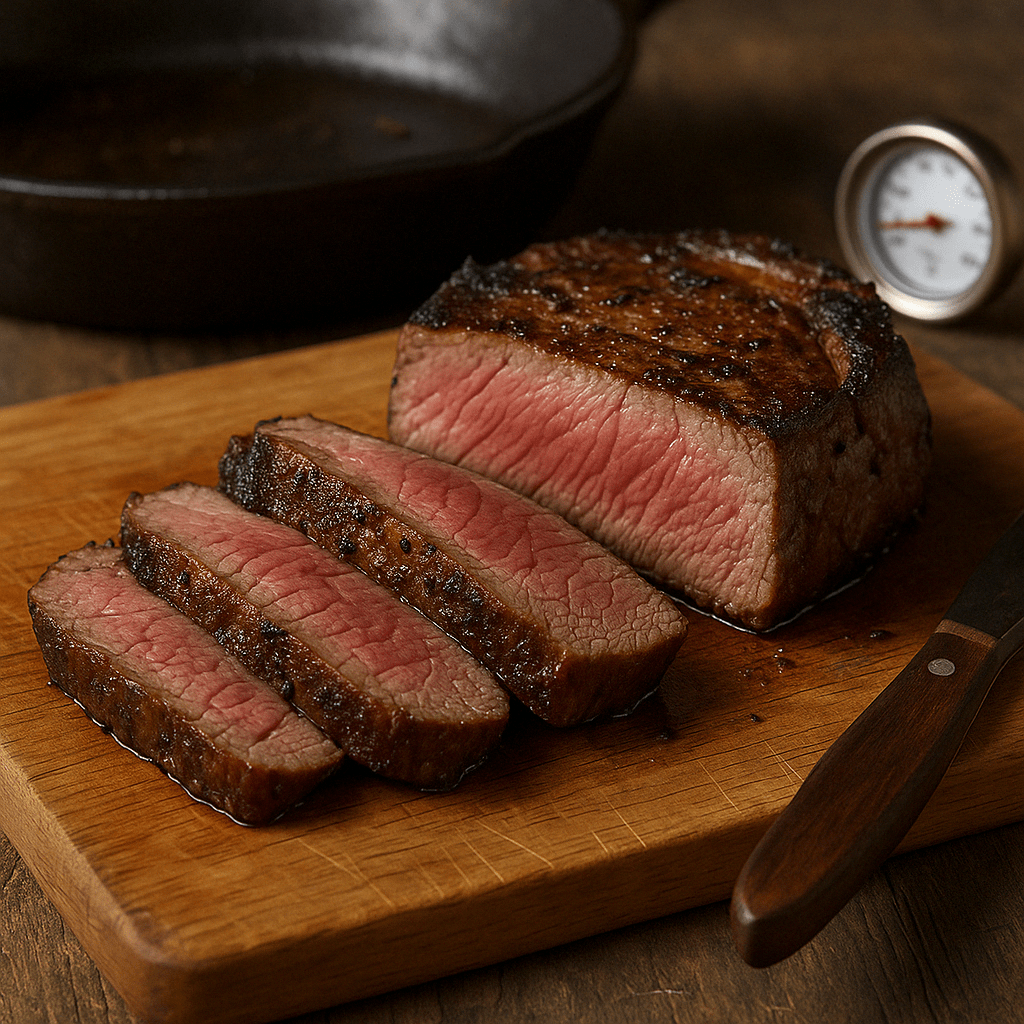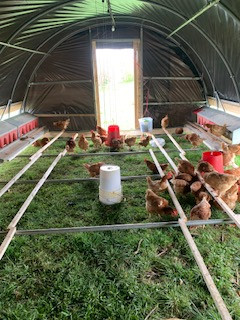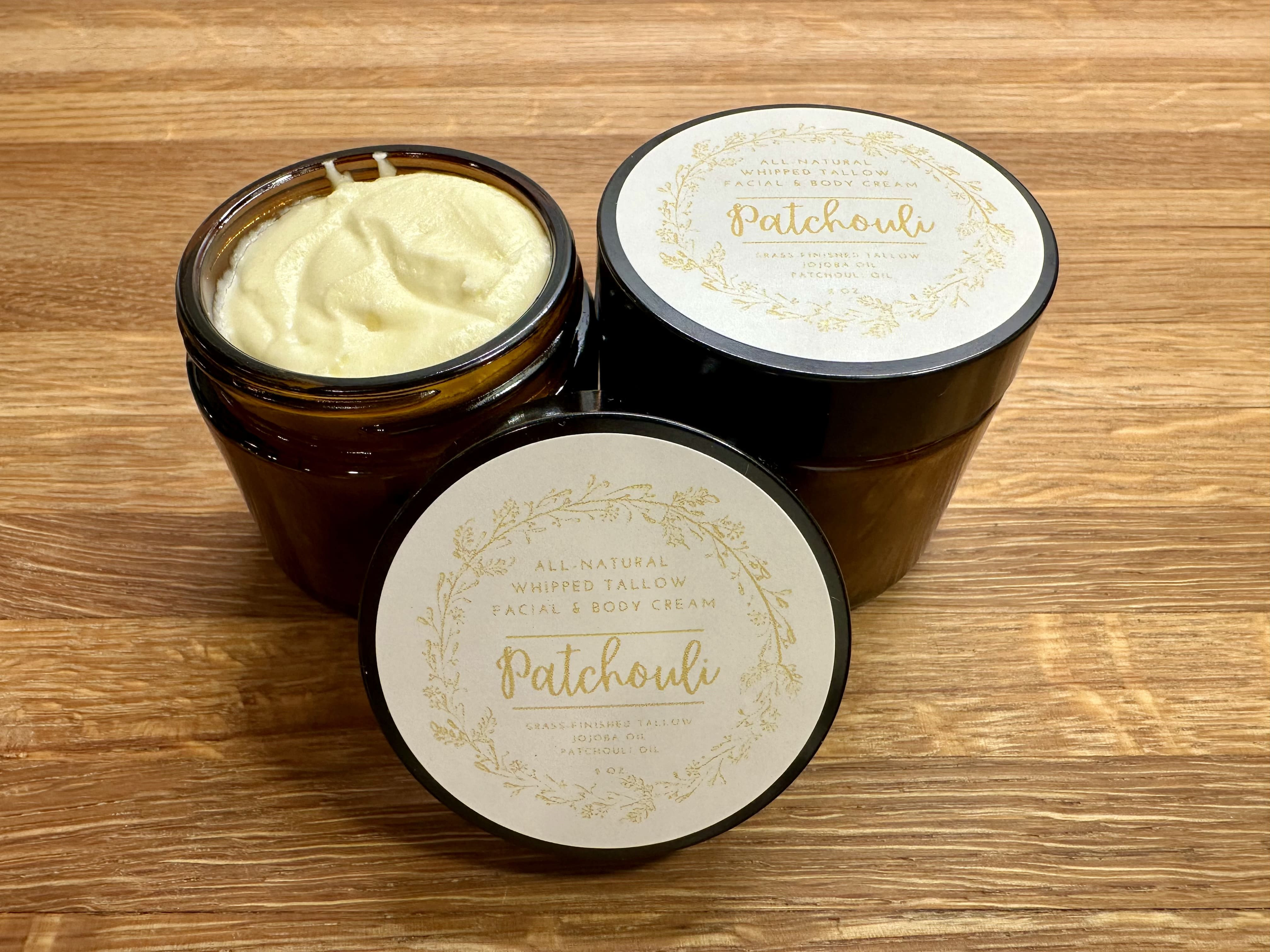Where does grass finished beef really come from?
posted on
July 17, 2024
In today's world, the journey your food takes to reach your plate is often shrouded in mystery. While many of us assume that the grass-finished beef we enjoy is locally sourced, or at least raised in the U.S. the reality is quite different. A significant portion of grass-finished meat available in the U.S. comes from South America. The vast majority 80%-85% comes from abroad. This misconception not only impacts our understanding of food quality and sustainability but also poses serious challenges for local ranchers striving to uphold high standards. In this blog post, we'll uncover the truth about where your grass-finished beef comes from, explore how this affects U.S. ranches, and discuss why buying local is more important than ever. To learn more about what grass-finished beef is check out our article "What is Grass-Finished Beef?".
The Truth About Grass-Finished Beef Origins
When we think of grass-finished beef, the image that often comes to mind is that of cattle grazing peacefully on vast, green pastures in the U.S. However, this idealized vision doesn't always match reality. A large percentage of the grass-finished beef sold in the United States is imported from other countries.
Global Grass-Finished Beef Market
The global market for grass-finished beef is expansive, with major producers including countries like Australia, New Zealand, and South America. These countries have vastly different cost structures and labor allowing them to produce beef at a much lower cost. This economic advantage often leads to a significant portion of grass-finished beef being shipped to the U.S., filling our supermarket shelves and restaurant menus.
Import Statistics
According to recent industry reports, up to 85% of the grass-finished beef sold in the U.S. is imported. This means that when you buy grass-finished beef, there's a high chance it has traveled thousands of miles before reaching your plate. This extensive journey not only impacts the freshness and quality of the beef but also adds to its carbon footprint, contributing to environmental concerns. There is also a huge economic impact for U.S. ranches competing with a cheaper imported product.
Common Misconceptions
Many consumers are unaware of the origins of their grass-finished beef, assuming that all products labeled as such are sourced domestically. This misconception is fueled by marketing strategies that highlight the benefits of grass-finished beef without clearly disclosing its country of origin. As a result, well-meaning consumers who aim to support local agriculture and sustainable practices may inadvertently be supporting international producers instead.
Understanding the true origins of grass-finished beef is crucial for making informed purchasing decisions. By being aware of where your beef comes from, you can choose to support local farms like ours that adhere to stringent quality standards and sustainable farming practices.
Impact on small family farms
The influx of imported grass-finished beef from other countries has significant repercussions for U.S. ranches, affecting everything from economic viability to quality standards.
Economic Effects
Being a small local producer our farm can face economic pressure due to the lower cost of imported beef. Countries like Australia, New Zealand, and Brazil can produce grass-finished beef more cheaply due to their lower cost of labor and lower production costs. This price disparity makes it difficult for U.S. ranchers to compete, often leading to reduced profits or, in some cases, forcing them out of business. Supporting local beef means bolstering the American agricultural economy and ensuring our ranchers can continue thriving.
Quality Concerns
Grass-finished beef from the U.S. is often held to higher quality standards compared to some imported alternatives. U.S. ranchers typically follow stringent guidelines to ensure the health and welfare of their cattle, which translates to better-quality meat. Imported beef, while sometimes less expensive, might not always meet the same rigorous standards, leading to inconsistencies in taste, texture, and nutritional value. By choosing locally sourced beef, you can be more confident in the quality and safety of your food.
Environmental Impact
The environmental toll of importing beef is substantial. Transporting beef over long distances requires significant fossil fuels, contributing to greenhouse gas emissions and a larger carbon footprint. In contrast, purchasing local grass-finished beef reduces food miles, and the distance food travels from farm to consumer, leading to a lower environmental impact. Supporting local producers like Cedar Valley Farms is better for your health and more sustainable for the planet.
The Benefits of Buying Local Grass-Finished Beef
Supporting local grass-finished beef producers has far-reaching benefits that extend beyond just enjoying a delicious meal. Here are some key reasons why buying local is the best choice for you, your community, and the environment.
Support Local Economy
You directly contribute to the local economy when you purchase grass-finished beef from local producers. Every dollar spent on locally produced beef helps sustain small ranchers and their families, enabling them to continue their farming traditions. This support creates a ripple effect, fostering job creation and economic stability within the community. By choosing local, you're not just buying beef; you're investing in the future of your local economy.
Quality Assurance
Local ranchers often adhere to stringent quality standards, ensuring that the beef you consume is of the highest quality. With local producers, you have the opportunity to learn about their farming practices, visit their ranches, and ask questions about how the cattle are raised. This transparency allows you to make informed decisions and trust that the beef you are consuming is fresh, nutritious, and produced with care. Local grass-finished beef is typically fresher, as it doesn't have to travel long distances to reach your table.
Sustainability
Purchasing local grass-finished beef is an environmentally responsible choice. Reducing the distance your food travels, also known as food miles, helps lower greenhouse gas emissions and minimizes the carbon footprint associated with transportation. Local ranchers also tend to employ sustainable farming practices that preserve the land and promote biodiversity. By supporting these practices, you contribute to the health of the environment and the preservation of natural resources for future generations.
Community Connection
Buying local beef helps strengthen the sense of community. It fosters a connection between consumers and producers, creating a bond of trust and mutual support. You get to know the people behind your food, share in their stories, and become part of a larger network that values local agriculture. This connection enhances the overall food experience, making every meal more meaningful and enjoyable.
In the next section, we'll introduce you to our farm Cedar Valley Farms, your source for high-quality, local grass-finished beef in Kentucky. Learn about our sustainable farming practices, our commitment to quality, and how you can easily purchase our products to enjoy the numerous benefits of buying locally.
Cedar Valley Farms - Your Source for Local Grass-Finished Beef in Kentucky
At Cedar Valley Farms, we take pride in offering premium grass-finished beef that embodies the essence of local, sustainable agriculture. Our commitment to quality, transparency, and community support sets us apart as your trusted source for grass-finished beef in Kentucky.
Our Practices
At Cedar Valley Farms, we believe in the importance of raising our cattle in a natural and humane environment. Our grass-finished beef comes from cattle that graze on lush pastures, which allows them to develop naturally without the use of hormones or antibiotics. We employ rotational grazing techniques that benefit both the animals and the land, promoting soil health and biodiversity. This sustainable approach ensures that our beef is not only delicious but also environmentally friendly.
Quality Commitment
Quality is at the forefront of everything we do. From the careful selection of our cattle to the meticulous processing methods, we ensure that every cut of beef meets the highest standards. Our grass-finished beef is known for its rich flavor, tender texture, and superior nutritional profile. By choosing Cedar Valley Farms, you can trust that you are getting the best beef that Kentucky has to offer.
How to Purchase
Purchasing our grass-finished beef is easy and convenient. You can visit our website to explore our range of products, including various cuts of beef, pasture-raised pork, and our newly introduced farm-fresh chicken. Our online store allows you to place orders for delivery or pick-up, ensuring that you have access to our high-quality meats whenever you need them.
Supporting Cedar Valley Farms means supporting local agriculture, sustainable practices, and high-quality food. We invite you to experience the difference that local, grass-finished beef can make in your meals and your community.
If you want to read more about our beef you can check out other blog posts below






